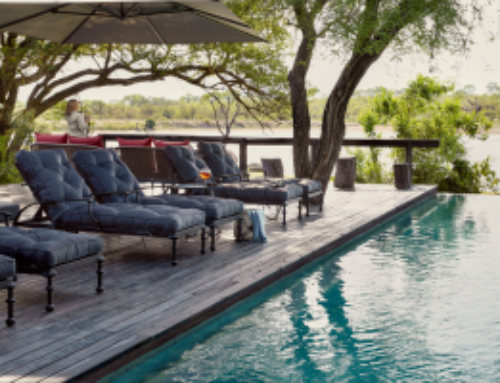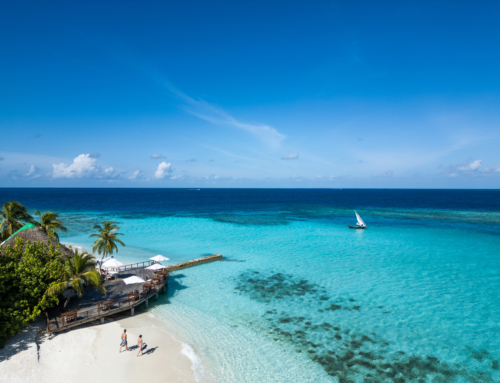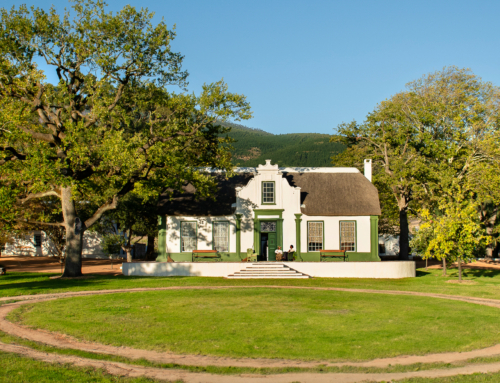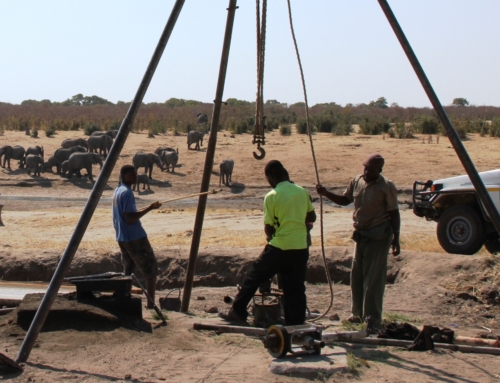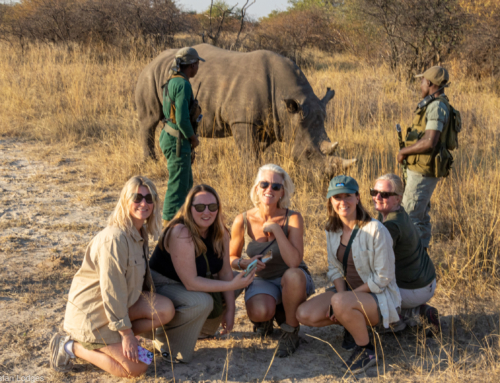We yearn to be back on the wide open plains of the Serengeti, at the crossing of thousands of wildebeest at the Mara River, to be in the remotest part of Tarangire with large herds of ele and where enormous, extraordinary baobab trees flourish. In the 2nd of our mini series, our 10Q are answered by Harjot of Nimali Africa.
Nimali Africa is a family owned and run collection of camps in Tanzania based in Tarangire, Central Serengeti and Kogatende, further north, close to the Mara river. Harjot’s impeccable taste and incredible attention to detail really set the Nimali camps apart and together with her brother-in-law, Premo, they have more camps planned. We have asked our partners in turn 10Q as to why they started their camps and what is integral to them.
1. Please introduce yourself by telling us what inspired you to start Nimali Africa?
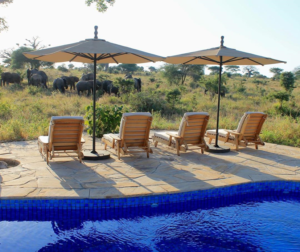
Nimali Tarangire Camp, Tanzania
2 . Did you always dream of working in this industry or did you set out to do something else? What led you to where you are now?
Wildlife has always been a passion for the family. We want our guests to enjoy a once in a lifetime experience and know Africa as we know it. A home away from home. We hope our guests use this time on safari to disconnect from the everyday and reconnect with nature. We also strongly believe that every trip to Africa should benefit local communities directly, so as to ensure the conservation of wildlife which is our greatest resource.3. What has been your greatest challenge(s) along the way with Nimali?
Alongside many accomplishments, we have had our fair share of challenges. The greatest challenge has been Human Encroachment. Over the years we have seen so much development take place in areas that used to be wild open areas with abundance of wildlife. As they say, the biggest threat to wildlife is habitat loss & climate change which is due to human led activities.
4 . What one ‘thing’ has been integral to your journey from the start?
To share our passion for African wildlife and its conservation for future generations to come.
5. Do you have a favourite animal or bird and why?
Lion – because they symbolise courage, strength, respect, nobility and are majestic.
In regards to the spiritual message, “the lion brings with it the need to stop over-stretching ourselves but try to balance matters and remain strong”.
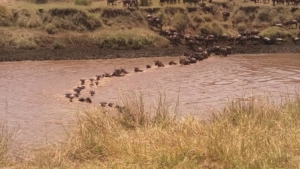
Wildebeest crossing near Nimali Mara, northern Serengeti
6. What is your favourite season or time of year in Tanzania?
We believe Tanzania is a great destination to visit all year around. We have great abundance of wildlife and wild areas. Being lucky enough to live in Arusha, we have the access to visit all our camps and other safari destinations in Tanzania throughout the year. Every trip on safari has been unique and different. The thrill of a safari is usually the excitement that builds of what is to come.
Personally we have different favourite seasons for all our different camps but, that doesn’t take away from the rest of the year:
Our favourite time of the year to be in Nimali Tarangire is from August to October. During the dry season the wildlife viewing is generally at its best in our private conservancy. We get loads of visitors at our waterhole and the majestic baobabs really stand out.
Our favourite time of the year to be in Nimali Central Serengeti is from January to May. During this time the park is usually quiet and the migration is spread around the area. We do have the short rains Jan to March which are quiet pleasant and keep the temperatures cool while the plains are nice and green. April & May we do have the long rains however if you don’t mind muddy puddles you should be fine.
Our favourite time of the year to be in Nimali Mara is from June to October. During this time the northern part of Serengeti is still refreshingly green, the temperatures are cool and the migration takes over the area.
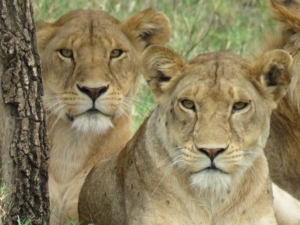
Majestic and powerful, the rulers of the Serengeti
7. What are your top three reasons for visiting Tanzania?
1. Wildlife: Tanzania has the world’s largest animal population per square kilometre. 30 percent of Tanzania is national parks. It is also one of the last remaining places where the possibility of discovering new species still exists. (In 2003, a new monkey, the kipunji, was discovered and is extremely rare with a population of only about one thousand animals).
2. Experiences: Tanzania offers some outstanding experiences. From climbing Mt Kilimanjaro, the world’s highest free-standing mountain to discovering the world’s largest intact caldera, a crater hollow the Ngorongoro Crater. The two spectacular natural phenomena are truly travel experiences in a class of their own.
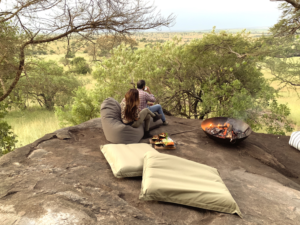
Nimali Central Serengeti camp
3. The People: Tanzania has 162 different tribes, each with its own unique character. As a tourist destination, guests are also able to acquaint culturally. Despite the lack of education, the people of Tanzania are very hospitable, friendly and kind. In fact, the shortest war in the world took place here. (“Many of the wars we know of from world history have been gruelling and prolonged. But Tanzania holds a completely different world record as the country where the world’s shortest war took place. The war between Great Britain and Zanzibar, which took place in 1896, lasted between 40 and 45 minutes. Britain came out the victor with just one person wounded while the losing side suffered a somewhat greater loss with more than 500 dead or injured”.)
8. What is the most pressing issue for you right now, in terms of the impact of Covid 19?
Poaching: With several camps & lodges closing down many employees have lost their jobs, parks are left unattended which will only encourage poaching for bush meat.
9. What can people do to support wildlife conservation and protect communities where you are, during this time?
They can help us spread the word & raise money together. We are in the midst of starting a fund to raise money for the conservation of wildlife and protection of communities. Another project we want to start manufacturing locally made face masks in line with CDC regulations and restrictions. The funds raised would be channelled towards the livelihood of local communities manufacturing these masks. For every mask sold, one mask will be donated to those in need.
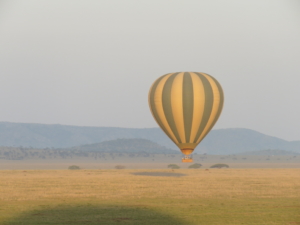
Drift over the migration in a hot air balloon.
10. Is there anything you would like to say to past and potential guests and the wider Africa conservation and interested community?
We need your help and support to ensure we have wild areas left for when this is all over.
In addition, our Nimali team has spent the past few weeks running COVID-19- specific training for all of our camps to ensure we have everything in place to protect our guests and staff, and to ensure that they meet the latest guidance from the World Health Organisation. These include daily briefings with all members of staff, careful health monitoring, and stringent hygiene measures. If you would like full details on our Covid19 Policy going forwards, please get in touch.

